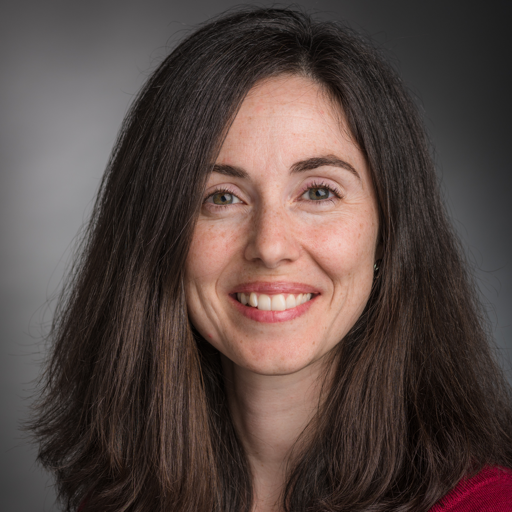
Q&A with Angela Feraco, MD, MMSc
September 25th, 2020
Angela Feraco, MD, MMSc is an Attending Physician at Dana-Farber Cancer Institute and Boston Children's Hospital and Instructor in Pediatrics at Harvard Medical School. Angela serves as Associate Program Director of the Pediatric Hematology/Oncology Fellowship and Course Faculty for Palliative Care Education and Practice.
Why did you decide to work in palliative care?
I became interested in pediatric palliative care because of its emphasis on communication, relieving suffering, and respect for families’ expertise and perspectives. I am a pediatric oncologist and palliative care researcher. As a pediatrician, I take care of children who are embedded in their families, and this aspect of pediatrics drew me to the field. While still a medical student, I asked about a family's perspective as to whether a patient should be transferred to an intensive care unit. The patient was a man who had advanced pancreatic cancer. Two adult daughters were at his bedside, watching their father get sicker. The supervising physician turned to me and said, not unkindly, “They don’t decide who goes to the ICU. We decide.” This physician was teaching me about professional duties I would assume as a future physician, including the duty to utilize clinical judgement. Yet when I think about achieving goal concordant care for children with serious illness, eliciting parents' perspectives is essential--we do decide, but this we is expansive enough to include professional caregivers and family caregivers.
Tell us about your area of interest. What drew you to this?
I take care of children with cancer, especially children with leukemia and lymphoma. Frequently, this work means I meet people during one of the scariest periods of their lives. My research focuses on communication and teamwork among children, parents, and clinicians during the first six months after a child is diagnosed with cancer. This is often a period of intensive medical care. Children may experience many symptoms from their cancer and its treatment as well as substantial life disruptions. During my training as a pediatric oncologist, I sought to determine what families and pediatric oncologists consider “in bounds” versus “off limits” to talk about together. “Off limits” topics can include important facets of a family's experience of their child's illness, such as family coping or ongoing worries about a child’s current or future quality of life. I created and am studying a communication intervention called the “Day 100 Talk.” The Day 100 Talk uses conversation tools to help parents, oncologists, and psychosocial clinicians talk about previously unvoiced worries. My work seeks to gently nudge “off limits” topics into “in bounds” territory.
What is your favorite part of your job?
There are so many things I love about the work I do. I like talking with people and hearing their stories. I read and write every day and I get to troubleshoot unexpected challenges. I especially enjoy working with clinicians and researchers who are in training. I serve as an Associate Program Director for the pediatric hematology/oncology fellowship at Boston Children’s Hospital and Dana-Farber Cancer Institute and I work closely with resident and fellow physicians. I learn from the questions people ask as they grapple with new concepts and there is a real thrill in helping someone to grow more skillful. I like to think about the big picture and also drill down into details. Caring for children with cancer and their families requires and rewards both perspectives. I am particularly lucky to work closely with nurses, psychosocial clinicians, and pharmacists, and when we combine our expertise and creativity in the service of our patients, it feels great.
Tell us about your background.
I grew up in a small town in Northern California in a family that is very rooted in California. I still think of myself as a Californian, but as of 2020 I’ve lived in New England for 15 of the past 20 years. My husband and I met in the first few days of college. We were friends for many years before we married. During the few years we lived on opposite coasts, we used to write each other letters. When we met, we had very different futures in mind. My husband thought he would like to have four children, and I wasn’t sure I wanted to navigate being a parent while being a physician. I did become a pediatric oncologist before we became parents. Now we have two young sons, which feels just right. Being a parent has shifted my perspective as a clinician. Families of children with cancer may be separated for extended periods—sometimes several months—and the enormity of this aspect of what it means to have a child with serious illness is more present for me now as I do my work.
What is the most helpful advice you have received?
I keep a slip of paper tacked to the wall in my office on which I typed a quote from a New Yorker article by Atul Gawande: “People talking to people is still how the world’s standards change.”
